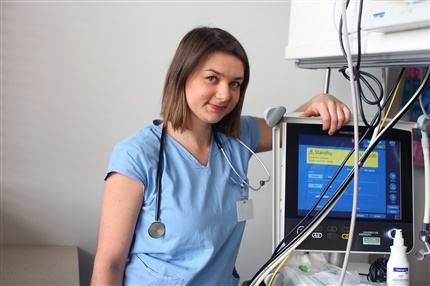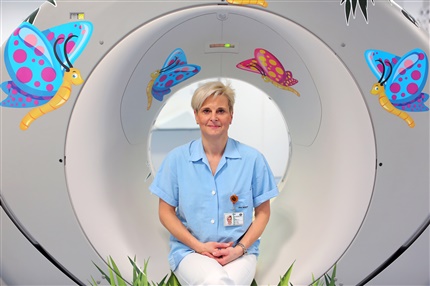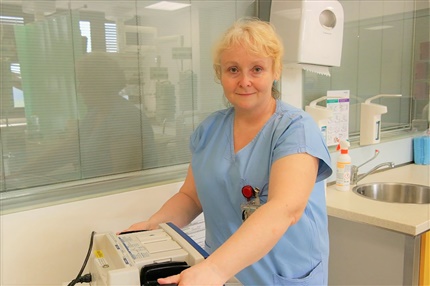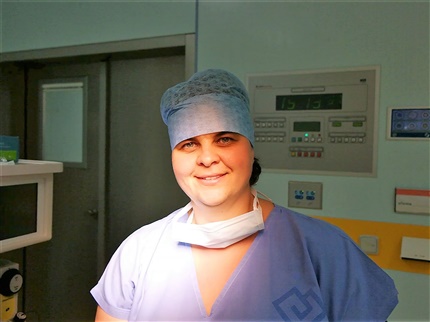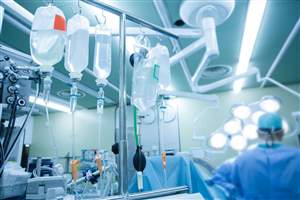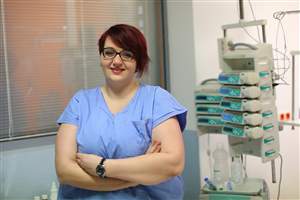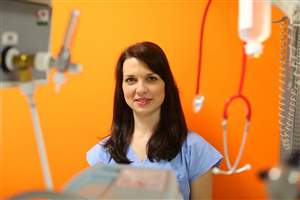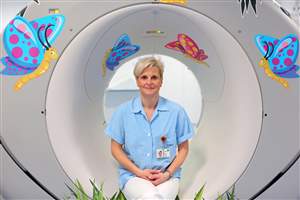A brief overview of the Resuscitation Unit for Adults and Children
Our resuscitation unit focuses on complex diagnosis and treatment in patients whose dangerous health conditions are caused by the corruption of their vital functions. Thus, these patients require the maximum level of care.
Our unit consists of the Pediatric Anesthesiology and Resuscitation Unit and the Adult Anesthesiology and Resuscitation Unit.
How will your detailed schedule look like? What type of procedures, methods or treatment can you observe? Check what can you see by shadowing every member of the mentoring team.
Is this specialty placement ideal for you?
-
Critical health conditions and fast paced work are the everyday reality of this intense shadowing placement for nurses to be. Both, adult and children patients, are frequently in life-threating conditions or after complicated surgeries and they need the support and care of nurses the most. Our care requires the constant presence of our team members, who are ready to provide immediate treatment.
-
If you look for a nursing work internship where you are going to learn and observe a lot, apply. We, as your mentoring team, are responsible for monitoring and securing the vital functions of the patient during surgery, performing inhalation anesthesia either with or without intubation, and also for assisting in postoperative care while monitoring the patient's condition.
Let's take a closer look at the specialties…
Our center covers 3 branches of medicine. The first specialty is Anesthesiology and the Treatment of Chronical Pain, which is a practice dedicated to pain relief and the total care of the patients before, during, and after surgery. This specialty uses various pharmacological methods or alternative approaches, such as hypnosis, anesthesia, and acupuncture. It is a set of medical procedures that allow us to perform operations, medical performances, and exploratory methods under general or regional anesthesia.
Our nursing team cooperates closely with a team of doctors and takes care of patients who are often in very serious conditions.
The aim of Resuscitation is to provide a comprehensive diagnosis and treatment for ill patients, who have severe life threatening health conditions that require the highest possible level of medical care. Patients are constantly monitored and our staff is ready for immediate action if necessary. We are able to perform early recognition of cardiopulmonary arrest and initiate cardio pulmonary resuscitation (CPR) using medicaments, defibrillators, or other special equipment.
The goal of our third specialty, Intensive Care Medicine, is to help patients suffering from life-threatening injuries and illnesses (e.g. complications from surgery, accidents, infections, and severe breathing problems).
Now you can see that our care requires the constant presence of our team members, who are ready to provide immediate treatment. We, as your mentoring team, are responsible for monitoring and securing the vital functions of the patient during surgery, performing inhalation anesthesia either with or without intubation, and also for assisting in postoperative care while monitoring the patient’s condition. Since the anesthetists assist during most surgeries, you will witness a large spectrum of specialized operations within various surgical departments. This includes Neurosurgery, Cardio Surgery, Obstetrics, and other specialties.
Who do we take care of?
As far as Intensive Care Medicine goes, we take care of both adult and young patients after major surgeries, polytrauma, monotrauma, head trauma, lung transplants, and artificial lung ventilations. We also manage patients with invasive monitoring such as hemodynamic monitoring, intracranial pressure monitoring, and more.
Resuscitative care is provided for critically ill patients with failing vital functions, who are in urgent need of medical care.
Anesthesiology and the Treatment of Chronic Pain prevents patients from feeling pain during surgery. We take care of patients who have to undergo various types of operations, medical performances, or exploratory procedures.
Furthermore, we focus on treatment of patients suffering from chronic obstructive pulmonary disease, stroke, myasthenia gravis, degenerative nerve diseases, and people who have suffered a major head injury or brain injury, and many other patients who are in need of long-term ventilator therapy. These patients require specialized rehabilitation and nutritional support.
Our methods and procedures
Our team uses various methods and procedures, to ensure the satisfaction of our patients:
- Peripheral nerve blockades for pediatric and adult patients
- Analgosedation especially for pediatric patients and also for adult patients
- Sonography for early diagnosis of bleeding in cavities of traumatized patients
- The latest video laryngoscopic method in cases of difficult intubation, including one-use intubation instruments
- Combined neuraxial blockades for replacements of major joints (hip, knee)
- Routine neuromuscular blockade reversal after anesthesia
- Routine monitoring of cerebral oximetry during surgeries of extracorporeal circulation and the use of deep hypothermia
- Arterial blood sampling to evaluate the acid-base status
How does the usual schedule look like?
- Our team works on regular schedule. We work on 12 hour shifts, therefore the work can be exceptionally demanding. You might stay a whole shift with your mentoring team, the days at the Unit are usually very intense. Anyway, 25 hours as a minimum are guaranteed every week.

